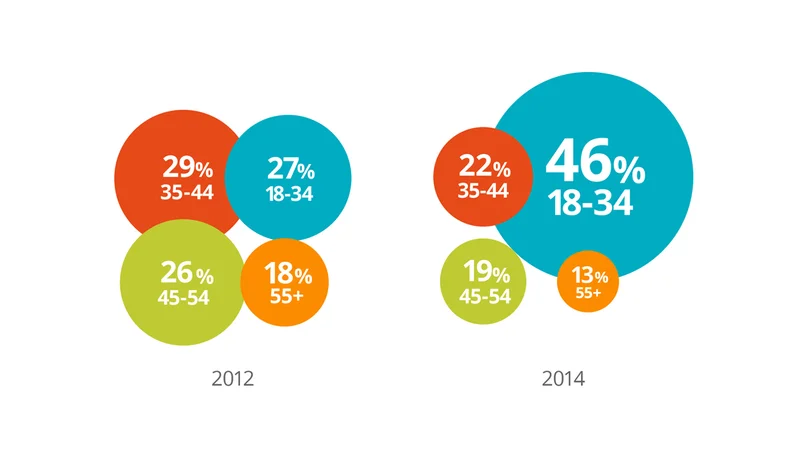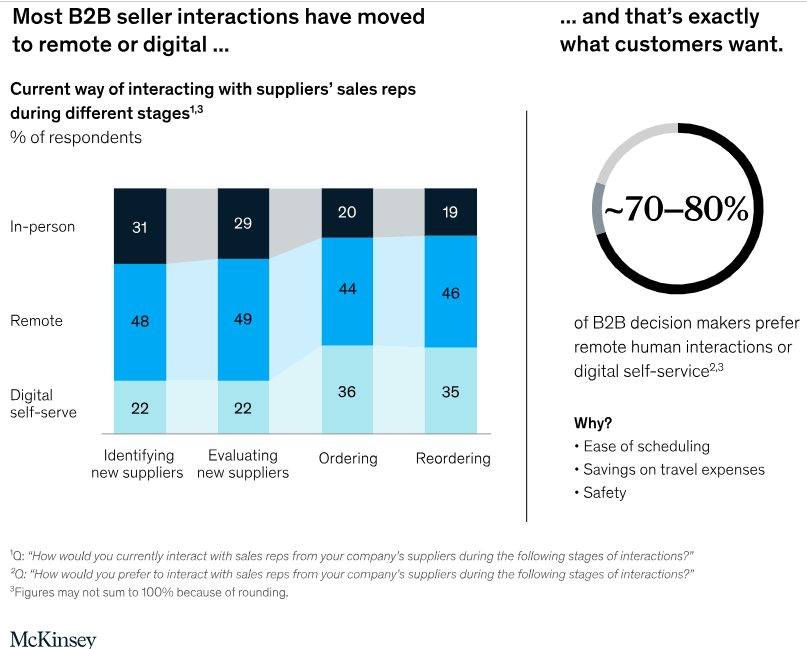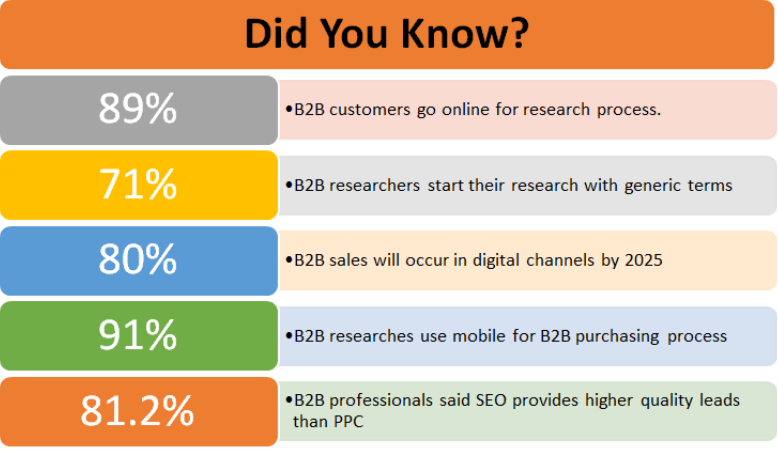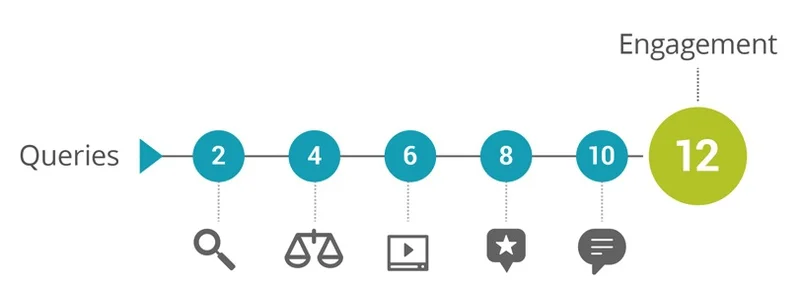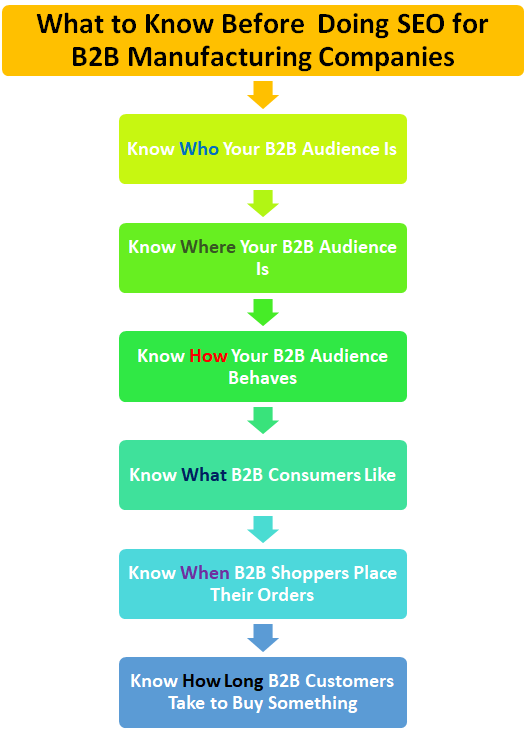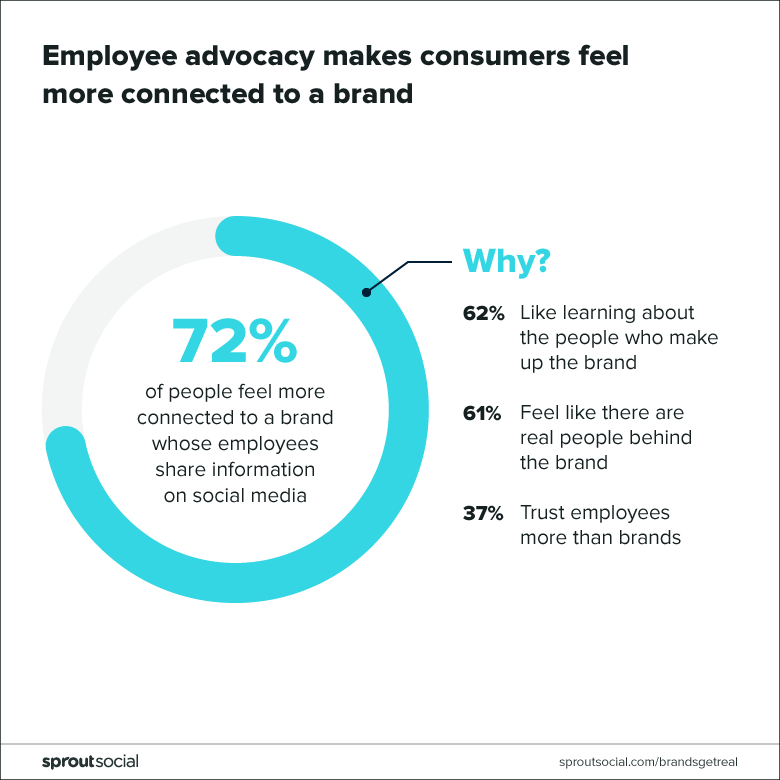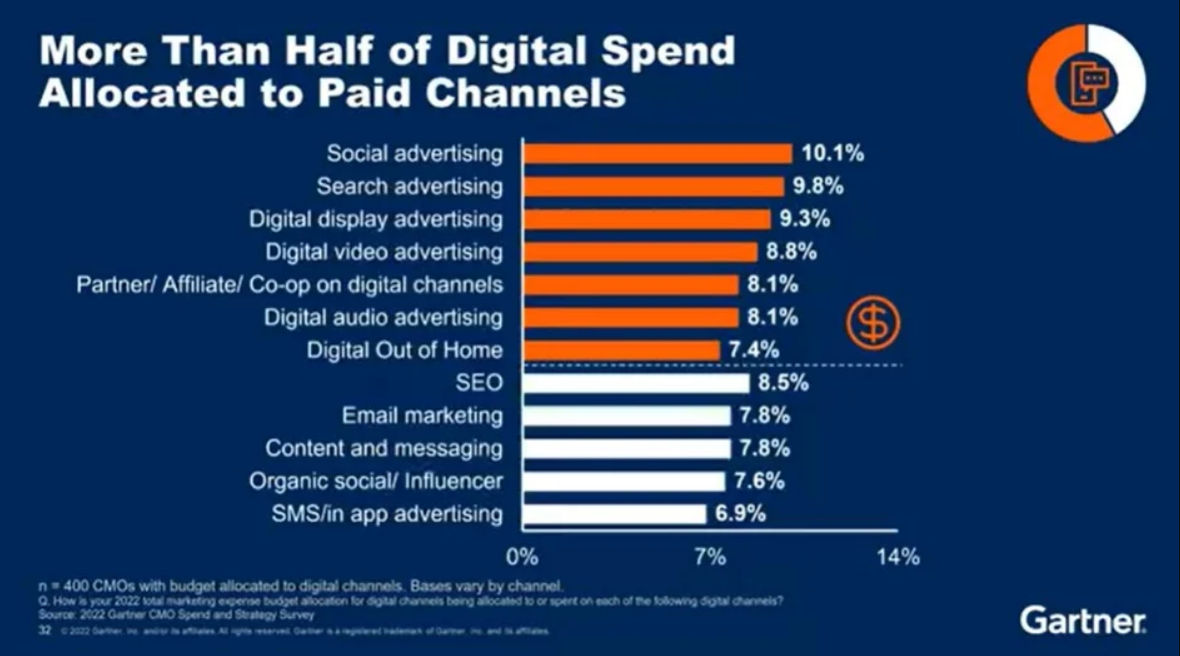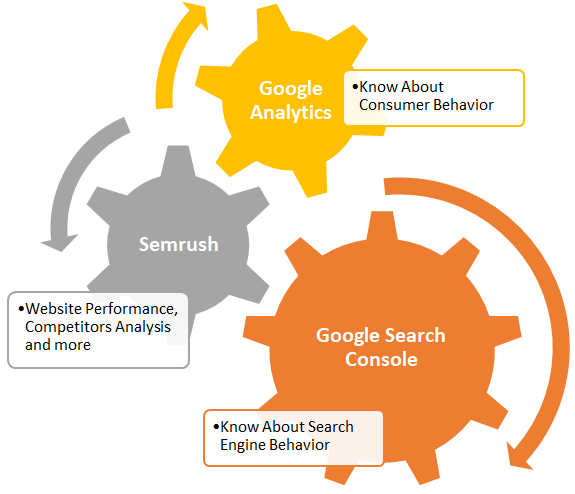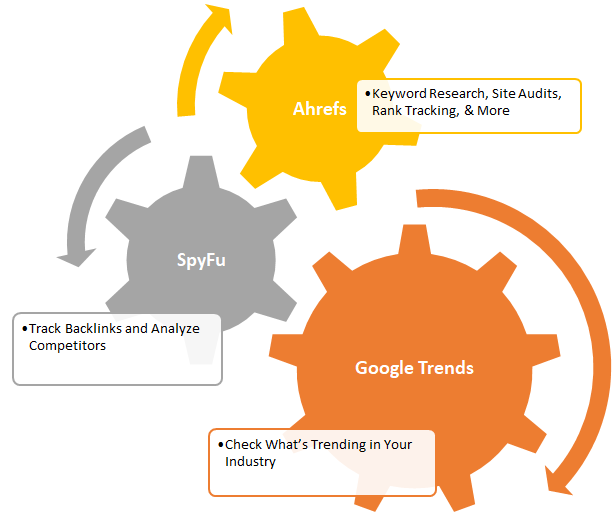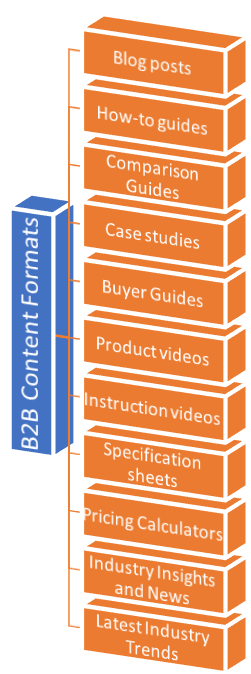Request For More Details
As baby boomers retire, millennials have stepped up and are making key business decisions. Since 2014, most B2B researchers are tech-savvy millennials who prefer doing online research and shopping. This is why manufacturing companies in the B2B industry must make themselves visible online in top search engine results in Google and other search engines to grab the attention of B2B buyers looking for their products. This is where SEO comes, which stand for search engine optimization.
If you run a manufacturing company and have not invested yet in SEO, it is a must for you to start B2B SEO right away.
In this blog post, we will discuss top B2B SEO Strategies for Manufacturing Companies and all you need to know for B2B SEO to dominate the digital world.
Why Is SEO Important for B2B Manufacturing Companies?
Many B2B marketers and manufacturing companies may find it surprising that, even a decade ago, 48% of all Tech B2B customers used to discover brands (they did not know about) through a search engine. This trend is even more prevalent in 2023 as more than half of B2B manufacturers and suppliers have shifted to digital mode after the Covid-19 pandemic.
According to McKinsey research, 70%-80% of B2B decision makers prefer remote human interactions or digital self-service more than in-person meetings or visits.
Even though B2B manufacturing companies may get faster results with PPC or paid campaigns, SEO is the best way to generate high-quality leads and make more sales, which are the ultimate goals of most B2B businesses. However, this does not mean you should ignore PPC campaigns completely. Since PPC brings faster results, you can combine SEO efforts with PPC to get faster results and quality leads.
Contrary to what most people think, the global B2B marketplace’s value is 5 times more than the value of the global B2C market. So, competition is much higher in the B2B industry than in the B2C industry. The value at stake and the risk of losing leads are also quite higher.
How Are B2B Buyers Different from B2C Buyers?
Unlike B2C consumers who often make quick and emotional purchase decisions, B2B buyers tend to be more calculating and methodical during their research process.
B2B purchases also frequently involve multiple decision makers weighing in, not just individual shoppers.
For manufacturing companies, you may need to convince several stakeholders at a client organization before landing a deal. B2B buyers are focused on how your product or service will solve specific business problems, improve productivity, or impact the bottom line. They are swayed less by flashy marketing.
Your SEO content strategy must focus on industry-specific needs, operational challenges, cost analyses, and proven ROI if you want to capture B2B searchers' attention. Detailed case studies, whitepapers, and product specs appeal more to rationally-minded B2B buyers than consumer-focused content like fun videos or lifestyle imagery.
B2B manufacturing companies must understand these key differences in motivations to create SEO content that speaks directly to their target audiences.
| B2B Buyers | B2C Buyers |
|---|---|
| Complex decision-making process | Simple and straightforward decision-making |
| Take a long time to reach the purchase stage | Short buying journey (may be affected by impulsive shopping) |
| Business relationships influence purchases | Purchases are driven by prices, discounts, and deals |
| Make decisions based on technical and educational content | May make purchases based on emotional content |
Key Things to Consider When Doing SEO for Manufacturers in the B2B Industry
Effective SEO for B2B manufacturing requires taking the time to understand your target audience. Unlike B2C marketing, you need to cater your strategy directly to industry-specific buyers, their challenges, and purchasing practices.
Know Who Your B2B Audience Is
Get as specific as possible in defining who your ideal customers are and what their search intent is. For instance, if you produce raw materials for manufacturing firms to help them make products, go beyond just manufacturers to hone in on details like company size, geographic region, manufacturing specialties, technologies used, etc. Create buyer personas that capture job titles and pain points.
Know Where Your B2B Audience Is
Manufacturing companies’ buyers may cluster in certain geographic areas or frequent particular publications and events. Do research to find out where your audience gathers online so you can connect with them through industry hubs.
Know How Your B2B Audience Behaves
Observe how manufacturers consume content and interact with brands as they move through the sales funnel. Notice what search queries they use, how they navigate sites, what assets they download, etc. Their digital body language will tell you what resonates.
Know What B2B Consumers Like
Compile a list of the specific topics, formats, and ideas that appeal to decision-makers involved in signing a contract with your manufacturing company so you can incorporate those elements into your content and web pages. For example, they may respond well to data-driven case studies.
Know When B2B Shoppers Place Their Orders
Business buying cycles often follow set budgets, meaning certain times of the year or quarterly milestones might see upticks in spending. Plan your sales and marketing to align with seasonal purchasing demand.
Know How Long B2B Customers Take to Buy Something
The complex B2B sales process can stretch over months. Ensure your SEO and funnel strategy for generating leads over an extended timeframe versus expecting quick conversions.
Exploring the persona, behaviors, and quirks of your target manufacturing audience will allow you to develop an SEO strategy tailored to their needs. This level of insight helps cut through the noise and delivers true value to B2B buyers at every stage.
Steps to Build a Strong Foundation for a B2B Manufacturing Firm’s Digital Growth
Establishing a solid digital marketing foundation is crucial before developing your manufacturing SEO strategies and tactics. Follow these steps:
1. Conduct Competitor Analysis and Research
Thoroughly analyze your top competitors' websites, content, and SEO strategies. Research which keywords and topics they target, study their technical optimization, and see who links to their site. This information will help you find gaps to fill.
2. Create Ideal B2B Buyer Personas for Your Manufacturing Business
Develop detailed buyer personas that capture job titles, pain points, and motivations of your target accounts. For lead generation, go beyond high-level profiles and get granular with personas for key roles like Operations Manager, Supply Chain Director, Engineering Lead, etc.
3. Understand B2B Consumers’ Buying Journey in Detail
Map out each touchpoint that manufacturing buyers have during their path to purchase. Identify key questions and needs for each stage to inform your content. For example, early research may focus on cost and later comparison may require ROI projections.
4. Humanize Your Brand for B2B Consumers Using Different Channels
B2B still involves people, so use storytelling across platforms like your site, social media, and videos to showcase your mission and values. Share employee profiles, community initiatives, or behind-the-scenes footage to build connections.
72% of people feel more connected to a brand whose employees share stories on social media.
5. Decide on Your B2B SEO Budget to Get Faster, Better Results
While B2C companies invest an average of 15.1% of their revenue on marketing, B2B product companies invest 7.8% of their revenue on marketing, as per Web Strategies Inc.

Free SEO Analysis
Best SEO Tools for B2B SEO for Manufacturing Companies
Selecting the right SEO analytics tools is crucial for executing and monitoring your organic strategy. While there are many options, some SEO tools prove to be very beneficial when it comes to building SEO strategies for your B2B manufacturing company.
Google Analytics
Track website traffic, acquisition channels, on-page behavior, conversions, and more.
Semrush
Run keyword research, backlink analysis, site audits, ranking tracking, and competitive research
Google Search Console
Gain insight into how Google views and indexes your site. Identify errors and see search queries.
Ahrefs
Conduct keyword and backlink research, identify link-building opportunities, and track organic performance.
SpyFu
Research competitor keywords and pay-per-click ads for initial strategy development
Google Trends
See search volume patterns for your industry's keywords and topics over time. It helps plan for seasonality.
This robust martech stack provides key data insights, benchmarks, and opportunities to sharpen your B2B manufacturing strategy over time.
Best B2B SEO Strategies for Manufacturing Companies to Rank on Page #1
1. Perform Keyword Research and Create a List of Top B2B Keywords for Your Niche
Researching and identifying the right keywords is critical for any effective B2B SEO strategy. As a manufacturing company, you need to dig into the specifics of your industry, products, services, and target buyers.
Steps to Create a Customized List of Keywords for Your Niche:
Conduct Keyword Research Using Tools
Use keyword research tools like SEMrush, Ahrefs, or Google Keyword Planner to find high-potential keywords. Look for terms with decent search volume and low competition within your niche.
For a manufacturer, relevant keywords may include:
- [Industry] manufacturing
- Custom [material] fabrication
- [Product type] prototyping
- [Industry] automation equipment
Analyze Competitor Keywords
Study what keywords your competitors are ranking for by checking their organic search results and looking at their meta descriptions. Identify any untapped keywords you could target.
Explore Long-Tail Keywords
Long-tail versions of keywords (containing 3-5 words) often convert better for B2B. Add modifiers like "for [industry]", "cost", "services", or "case studies".
Align Keywords to Buyer Journey
Organize keywords based on where they fit in the buyer's journey. Group them into categories like:
- Early stage: [industry] trends, cost of [service], [material] manufacturing processes
- Mid stage: [product] specifications, custom [product] design
- Last stage: [company] case studies, [company] reviews
Conduct Interviews with Customers
Talk to customers about their pain points and the keywords they use when searching for solutions. Incorporate these into your list.
Refresh and Expand the Keyword List
Continuously add new relevant keywords to your list. Rotate out ones that underperform. Aim for 50-100 keywords specific to your manufacturing niche.
2. Keyword Mapping with Target Buyers at Different Funnel Stages
When developing your B2B SEO strategy, you need to map keywords to each stage of the buyer's journey to attract B2B Buyers through the entire funnel.
For the awareness stage, target informational keywords like:
- [Industry] manufacturing trends
- How does [process] work?
- [Material] fabrication explained
For the interest stage, focus on keywords that dive into product details, such as:
- [Product] vs. [competitor product]
- Custom [product] specifications
- [Industry] automation equipment comparison
For the decision stage, optimize for keywords that indicate intent to purchase:
- [Product] pricing
- Request a quote for [service]
- [Company] case studies
For the purchase or action stage, you can create landing pages or promotional content with CTA Buttons like Buy Now, Purchase, Sign Up, etc.
- Top 5 CNC Machines to Buy in 2023
- Best Quality Wood for Cabinet Makers to Buy
- Shop Fabrics for Wedding Apparels
Continuously expand your lists for each funnel stage. You should group keywords into topic clusters, with pillar pages targeting broad topics and cluster pages diving into specifics.
A great SEO tool to create topic clusters is Semrush.
For example, a pillar page on "Metal Fabrication" could link to pages on "Steel Fabrication," "Aluminum Fabrication," "Custom Metal Fabrication," etc. Each cluster page would optimize for keywords relevant to its stage in the buyer's journey.
This organized, targeted approach will attract manufacturing prospective customers at all levels of research and consideration, guiding them through your sales funnel.
Building Strategy and Creation of Scalable SEO B2B Content
To create content for B2B SEO, take a strategic approach to building assets that engage potential clients of B2B manufacturing companies during every stage of the buyer's journey.
Start by developing pillar content pages that target high-level topics and keywords to attract potential customers doing initial research. Creating and adding scalable content to your website is a crucial part of on-page SEO.
For example, manufacturing pillar pages could cover topics like:
- Benefits of Automation in Manufacturing
- Choosing a Custom Metal Fabricator
- Latest Trends in Industrial Manufacturing
Optimize these pages for informational keywords to capture early awareness stage traffic. Then, create cluster content pages that link back to the pillars but dig deeper into specific pain points, products, or solutions. For instance, the custom metal fabrication pillar could have clusters on services, materials, processes, applications, etc. Optimize cluster content pages with keywords focused on comparison, consideration, and decision-making. Include high-valuable content assets like ebooks and whitepapers to collect lead information. Finally, develop bottom-of-the-funnel content to encourage purchases. Add case studies, data sheets, ROI calculators, free trial offers, and other conversion-focused content. This scalable approach lets you expand your content marketing over time while optimizing for keywords that move manufacturers’ ideal prospects through each step of the buyer's journey.
Type of Content to Focus on During B2B SEO for Manufacturing Companies
4. Promote Your Pillar B2B Content to Create Quality Backlinks
For off-page SEO, links from authoritative sites are crucial for B2B SEO ranking success. Create pillar content centered around major topics or keywords your ideal B2B buyers search for, and then actively promote that content to secure links.
Start by identifying your most comprehensive, evergreen pillar content pages.
For a manufacturing company, this could be resources like:
- Ultimate Guide to Metal Fabrication
- State of Automation in Industrial Manufacturing
- Research Report on Manufacturing Industry Trends
Develop a promotion strategy for each piece of content:
- Reach out to industry media contacts to pitch an exclusive on your latest report. Offer to write a summary article or give quotes.
- Send an email to relevant associations and organizations to suggest adding your guide to their resource pages or materials.
- Use broken link-building tools like Ahrefs or SEMrush to find mentions of outdated resources you could replace with a link to your updated pillar content.
Promote new pillars on social media and link to them when guest posting on industry blogs. Add schema markup to pillar pages to increase visibility. The more high-authority sites that link back to your pillar content and manufacturing website, the more SEO authority your site gains. This, in turn, boosts you in SERPs for major B2B keywords and topics to pull in quality organic traffic and free website visitors.
5. Create B2B Product/Service Landing Pages and Optimize Them
Product and service pages are critical landing pages that convert your SEO traffic into more qualified leads and sales.
Best Practices to Create and Optimize Effective B2B Landing Pages:
- Build a separate page for each major product/service you want to rank for. Include relevant keywords in the titles and headings (e.g. "Precision CNC Machining Services").
- Craft a meta description that uses keywords to summarize the offering and its benefits.
- Structure the content to clearly explain what the product/service is, key features, how it solves customer pain points, and why buyers should choose you over competitors.
- Add visuals like product photos, schematics, videos, etc., to enhance the content.
- Include prominent calls-to-action like "Request Quote" or "Free Trial" to drive conversions.
- Insert links to supporting pages like FAQs, case studies, or pricing.
- Check that the page load speed is optimized and that the pages are mobile-friendly.
- Use schema markup to enhance technical SEO.
- Monitor keywords and tweak pages based on search performance.
This manufacturing SEO strategy for business-to-business marketers and and industrial companies will ensure your product/service pages attract qualified site visitors and organic traffic and compel your target B2B audiences to engage further down the sales funnel.
6. Other Important Factors That Help Outrank Competitors
SEO is more complex than one can imagine and there are more than 200 ranking factors. So, it is the best practice to optimize your website according to Google’s guidelines. Some other SEO factors that influence your search engine rankings are:
- Domain Authority: Having a high domain authority signals to Google that your B2B site is trustworthy and should rank well, so work to build backlinks and authority.
- Domain Authority : Having a high domain authority signals to Google that your B2B site is trustworthy and should rank well, so work to build backlinks and authority.
- Optimize Website Structure : Structured, logical website architecture with B2B product/service pages makes it easier for search engines to crawl and index your important B2B product/service pages.
- Fix Technical Errors : Eliminate technical errors like broken links or site speed issues that could negatively impact crawling and SEO performance.
- Domain Age : Older domains tend to rank better as they have had more time to build authority, so use an aged domain if possible or work to accelerate new domain growth. authority.
- Internal Linking : Internal links help search engines discover and crawl your site, and pass authority between pages to boost search rankings on the first search engine results page.
- E-E-A-T Signals : Focus on infusing the expertise, experience, authoritativeness and trustworthiness of your B2B website by publishing high-quality B2B content from industry experts to improve relevance.
B2B SEO for manufacturing companies can be challenging because of the complex and longer sales cycle. With this guide and B2B SEO tips, you can significantly improve your online visibility among B2B buyers, enhance your brand awareness, and make more sales and revenue than ever. If you need professional assistance with B2B SEO for your manufacturing company, Media Search Group is always ready and happy to help you grow your B2B manufacturing business online. For information on B2B SEO packages and details, talk directly to our SEO experts at +1 6573124124 or send us your query at info@mediasearchgroup.com.


